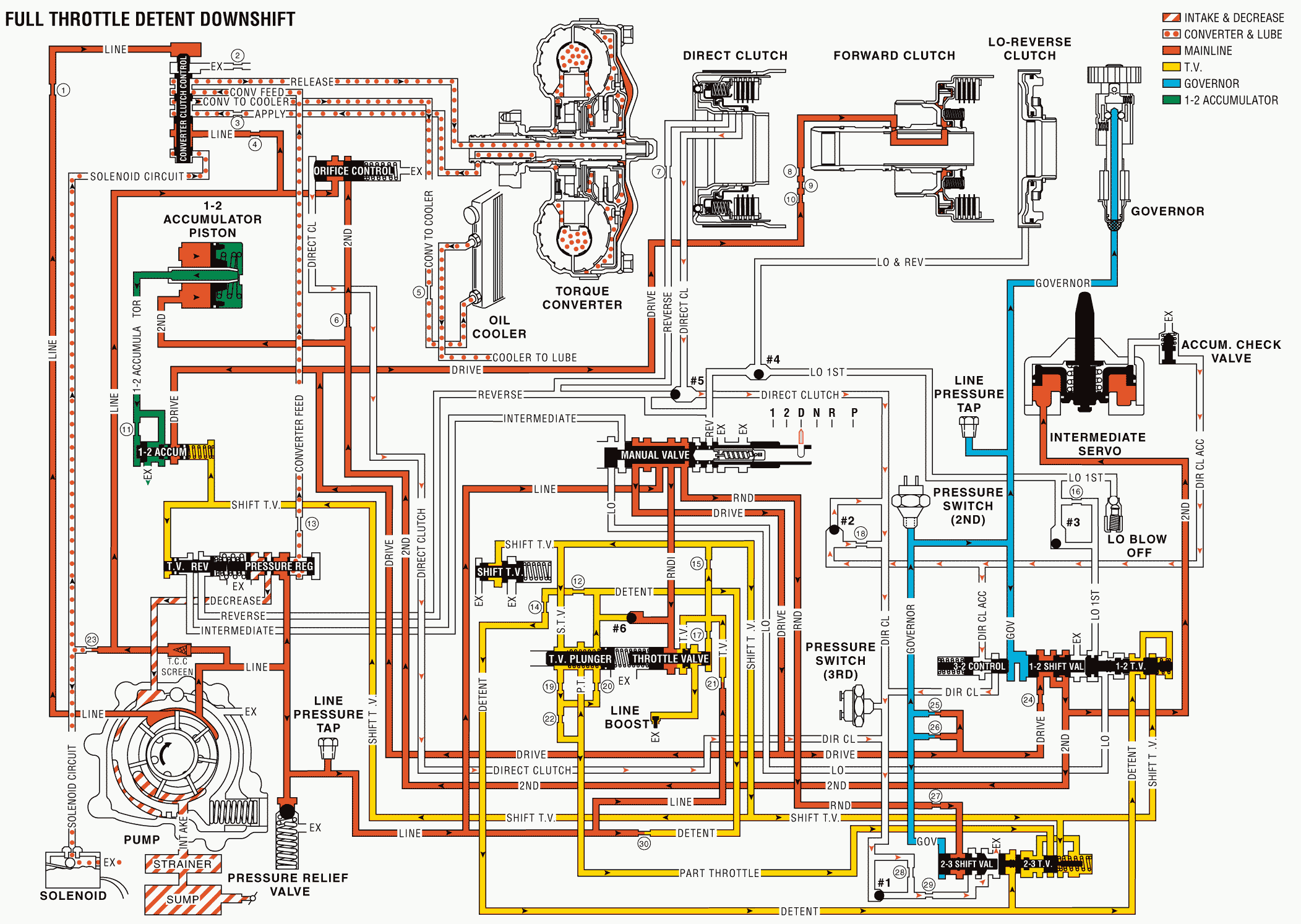Below 105 Km/h (65 mph)
While you are operating the vehicle at speeds below approximately 105 km/h (65 mph), you can achieve a forced or detent 3-2 downshift by depressing the accelerator pedal fully. This action will position the throttle valve (TV) plunger, allowing the shift TV oil to enter the detent passage. This oil, called Detent oil, is then routed to the following components:
| • | The 2-3 throttle valve |
| • | The 1-2 throttle valve |
| • | The RNDI and detent checkball |
Detent oil from the TV plunger flows to the 2-3 throttle valve. Detent and part throttle (PT) oil pressure combines with the 2-3 spring force in order to close the 2-3 shift valve against governor oil. This allows direct clutch oil through two orifices to exhaust at the 2-3 shift valve and release the direct clutch plates. Also 3rd accumulator fluid exhausts through the 3rd clutch fluid circuit allowing 2nd clutch fluid to move the servo and apply the intermediate band.
Above 80 Km/h (50 mph)
At high vehicle speeds, above approximately 80 km/h (50 mph), governor oil acts on the 3-2 control valve and closes the 3-2 valve. Now the direct clutch accumulator oil exhausts from the intermediate servo accumulator checkball. The oil flows through another orifice controlling the intermediate band apply to prevent engine flare.
A detent 2-1 downshift can be accomplished at speeds below approximately 48 km/h (30 mph). Detent and STV fluid pressures, in addition to 1-2 TV spring force, will overcome governor pressure and close the 1-2 shift valve shifting the transaxle into first gear.
Summary
At speeds between 48 Km/h (30 mph) and 105 Km/h (65 mph) full throttle detent will cause the direct clutch to release and the intermediate band to apply to achieve a 3-2 downshift.
Below 48 Km/h (30 mph) fluid and spring pressures overcome governor pressure to close the 1-2 shift valve and shift into first gear.
Full Throttle Detent Downshift

